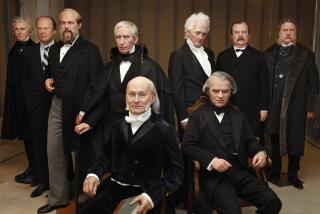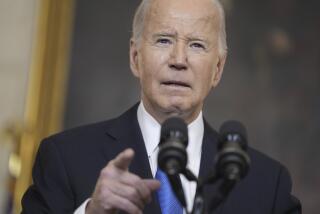Forbes ‘Most Powerful’ list ranks the rich, the smart and the menacing
Good thing the 1960s adage “Never trust anyone over 30” died out with bell-bottom jeans and black-light posters, otherwise there would be no one on this year’s Forbes’ list of the “World’s Most Powerful People” to inspire confidence among the rest.
At 31, Facebook founder Mark Zuckerberg (No. 19) is the youngest, and North Korean dictator Kim Jong Un (No. 46) is thought to be 32. The average age of the movers and shakers is skewed by the likes of 85-year-old investment kingpin Warren Buffett (No. 13) to come in just a few days short of 60. Microsoft founder and philanthropist Bill Gates (No. 6), Chinese Premier Li Keqiang (No. 12), Egyptian President Abdel Fattah Sisi (No. 49) and U.S. Supreme Court Chief Justice John G. Roberts Jr. (No. 60) are all 60.
Topping the rankings of leaders, innovators, benefactors and menaces is Russian President Vladimir Putin, for the third year in a row. Putin, 63, is “one of the few men in the world powerful enough to do what he wants -- and get away with it,” the magazine said of the Kremlin leader, who retains stunning popularity in spite of involving his country in armed conflicts and provoking a painful economic crisis.
Just behind him is German Chancellor Angela Merkel, who uses her power to promote unity on the continent and generosity toward the less fortunate, Forbes said in calling her “the most powerful woman on the planet for 10 years running.”
Coming in third is President Obama, described by the magazine as leader of “the world’s greatest economic, cultural, diplomatic, technological and military power” but constrained by the partisan politics that thwart more effective leadership in Washington.
Here are the magazine’s 10 “Most Powerful People in the World” and why Forbes chose them:
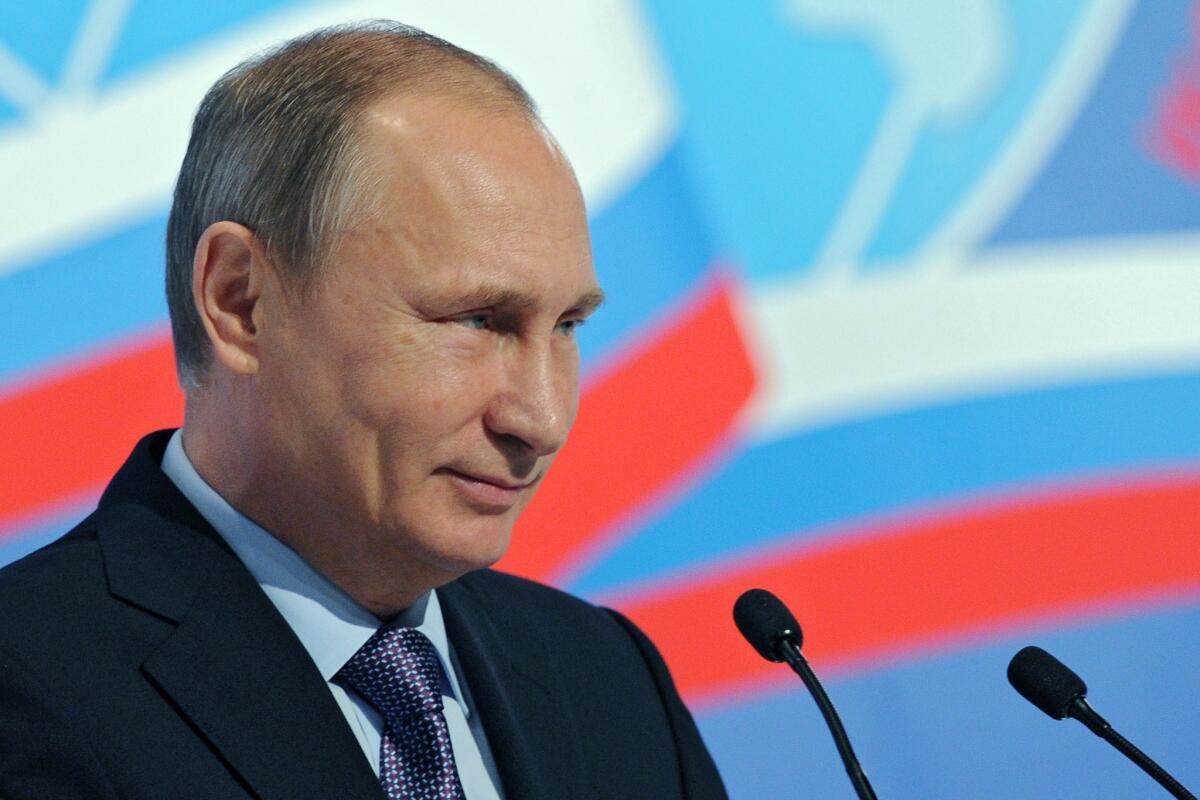
Russian President Vladimir Putin delivers a speech at the 5th World Congress of Compatriots Living Abroad in Moscow on Nov. 5.
International sanctions imposed after Russia seized Crimea and waged war by proxy in eastern Ukraine savaged the ruble and drove Russia into recession. But Putin’s approval rating hit 89% in June and has hardly wavered since the Kremlin leader sent his armed forces into Syria to prop up allied autocrat President Bashar Assad and attack Islamist militants.
She clinched a third four-year term at the helm of Europe’s most vibrant economy, steered creditors and indebted Greece toward a third Eurozone-rescuing bailout, joined forces in the multinational fight against Islamic State militants and appealed for European generosity and compassion toward the hundreds of thousands of migrants fleeing conflict and oppression this year.
3. Barack Obama
As he enters the final year of his presidency, his influence is shrinking amid political discord and approval ratings often below 50%. He struggles to get things done at home and is outshined by Merkel in Europe and outmaneuvered by Putin in the Middle East.
4. Pope Francis
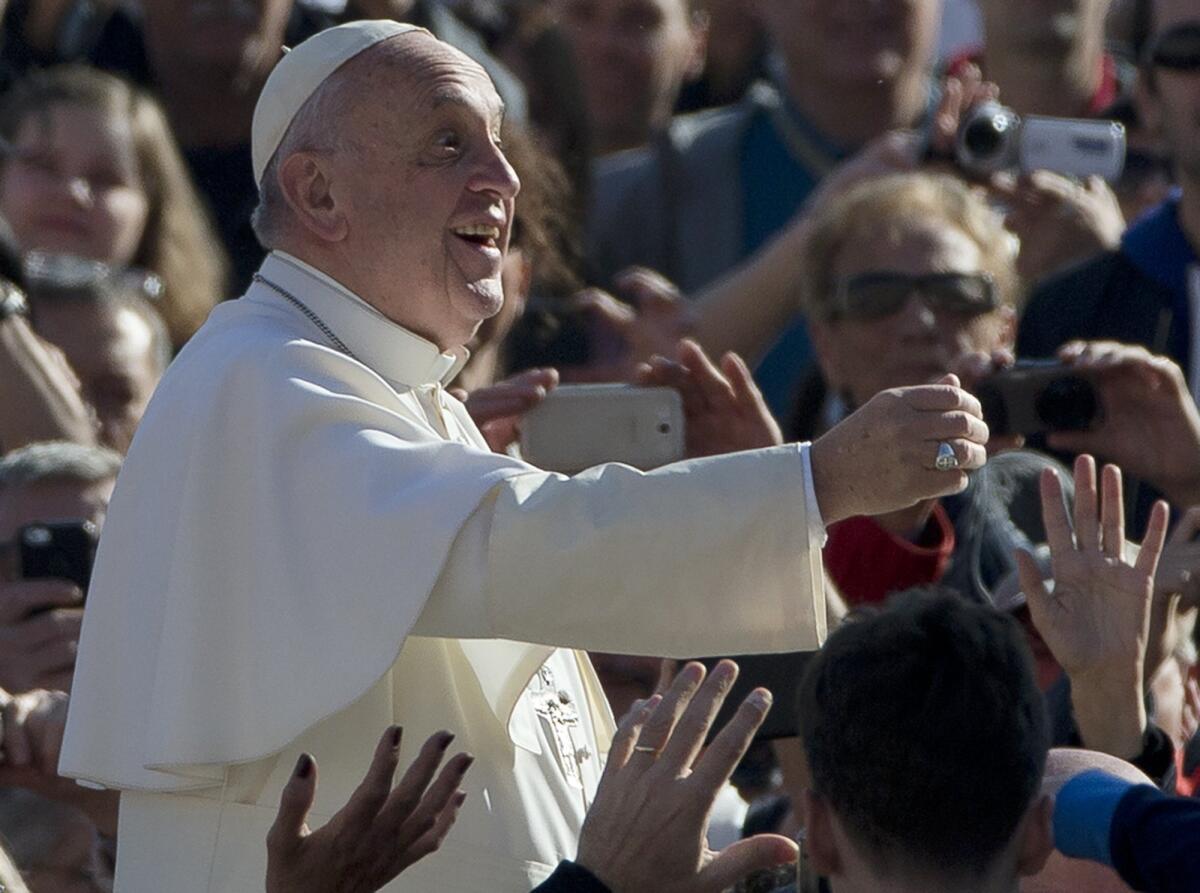
Pope Francis arrives for his weekly general audience in St. Peter’s Square at the Vatican on Nov. 4.
The spiritual leader of one-sixth of the world’s population, the pope has made it his mission to transform the long-standing conservative image of the Roman Catholic Church. He has been a leader in urging actions on climate change, immigration and the persecution of Christians and other minorities in the Middle East.
5. Xi Jinping
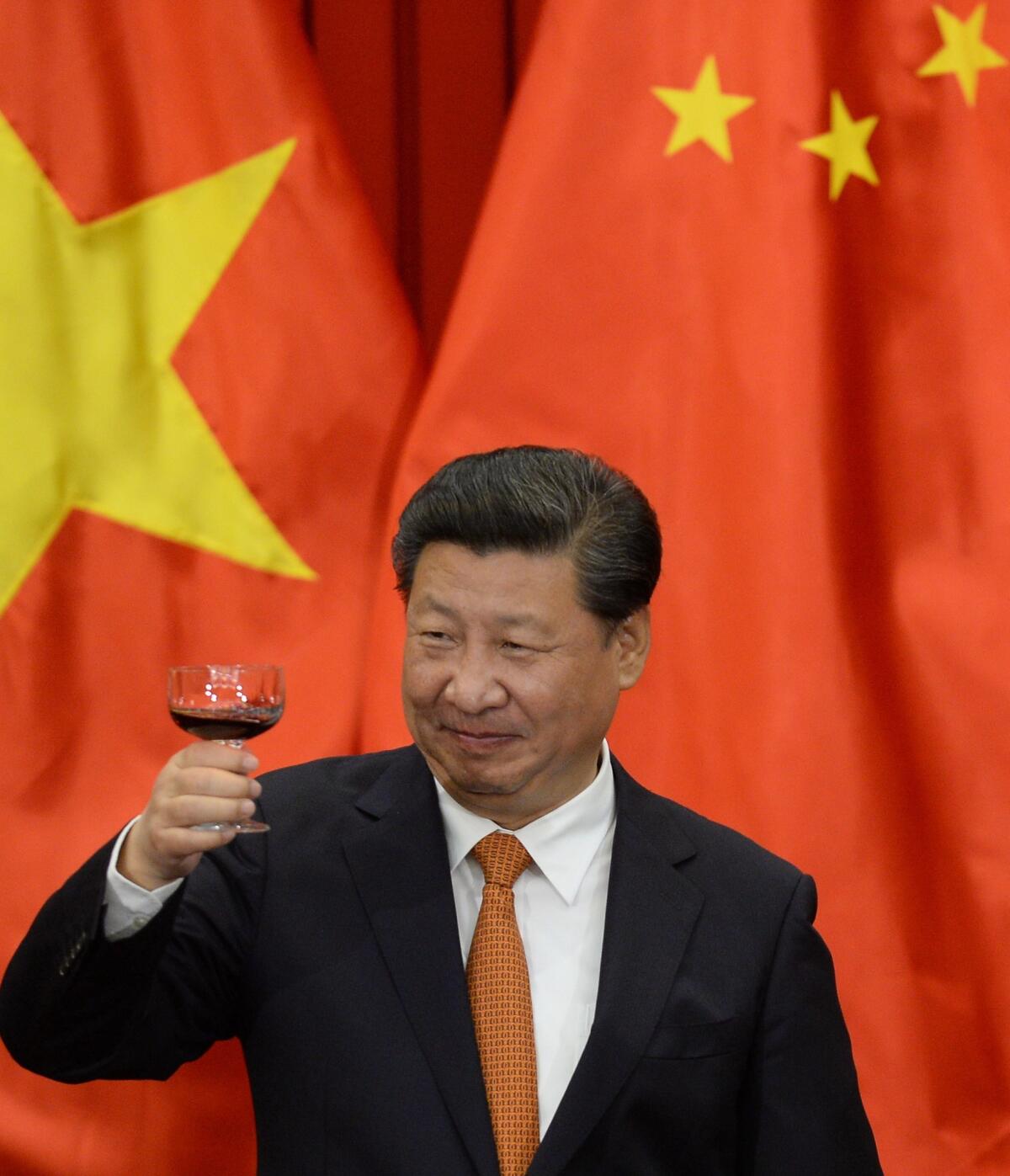
Chinese President Xi Jinping raises a toast with Vietnamese officials in Hanoi on Nov. 5.
China’s paramount leader is the most powerful in the Middle Kingdom since Mao Tse-tung. Xi was quick to see the benefits of privatization-friendly reforms and has engaged in fresh thinking across the social and economic panoramas.
6. Bill Gates
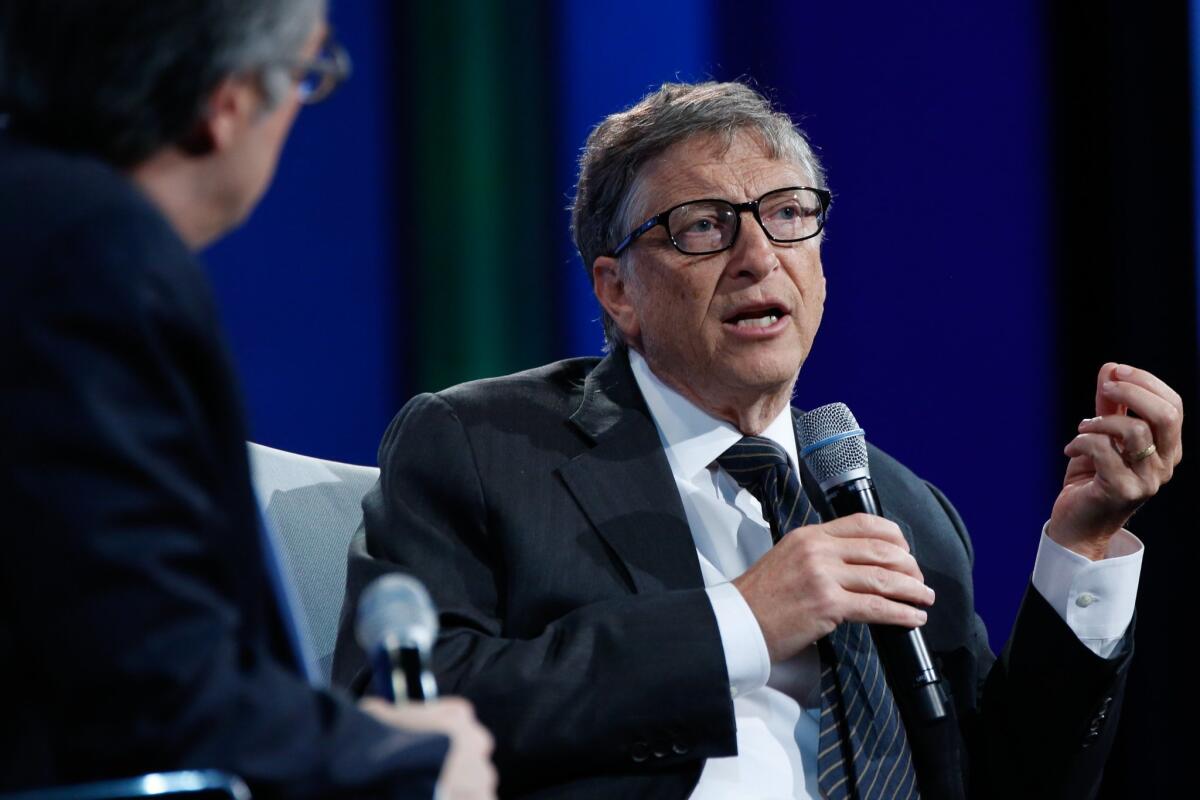
Bill Gates addresses a session on healthcare during the 2015 Clinton Global Initiative’s annual meeting in New York on Sept. 27.
The world’s richest man launched Microsoft with his friend Paul Allen 40 years ago with the goal of getting a computer on every person’s desk. Now, 84% of U.S. households own a computer. But Gates and his wife, Melinda, exercise power for an arguably greater good through their charitable foundation devoted to reducing inequity in the world.
7. Janet Yellen
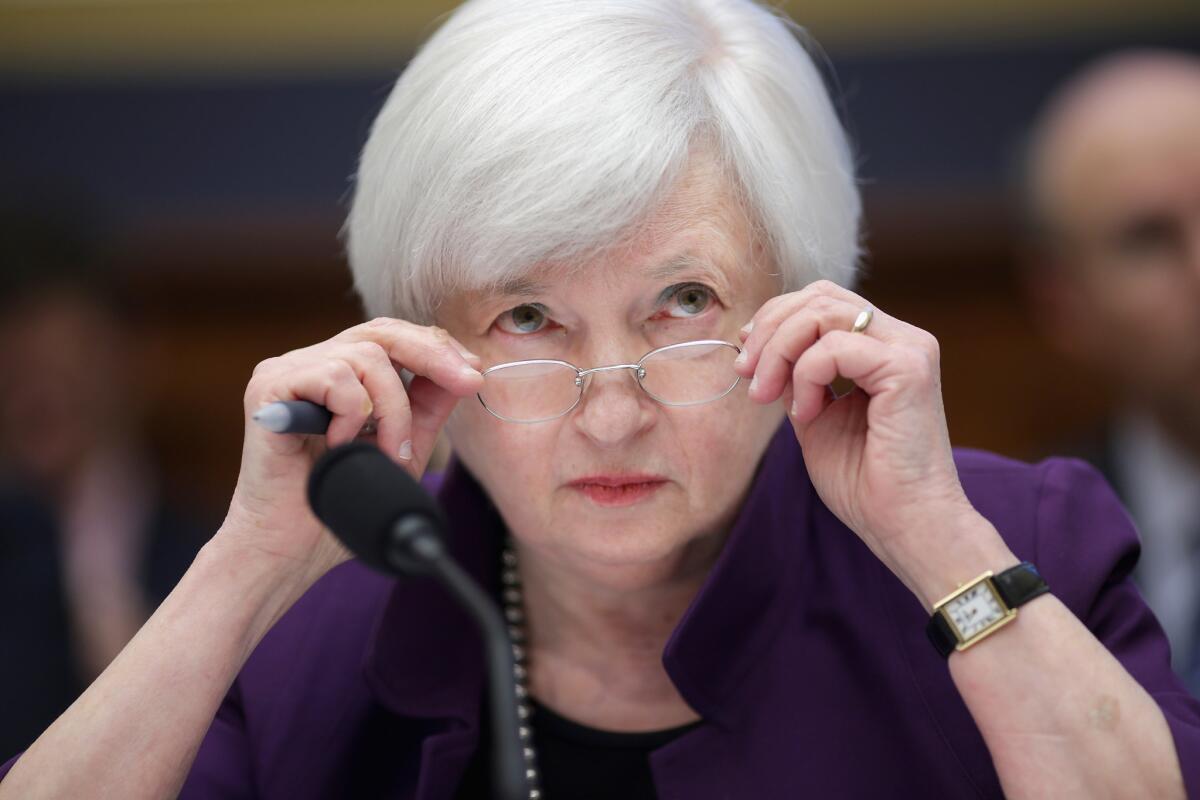
Federal Reserve Chairwoman Janet Yellen testifies before the House Finance Committee in Washington on Nov. 4.
The first female head of the U.S. Federal Reserve, an Ivy League-educated economist, has deftly ushered markets through six bond-buying cuts and could begin loosening the economic reins on interest rates as soon as next month to further unwind recession-era interventions.
The British prime minister held on to his office at 10 Downing St. this year, winning reelection in May. He now presides over the country’s only conservative-majority government in 23 years and has elevated Britain’s voice in the continental debate over how much national sovereignty should be sacrificed to European integration.
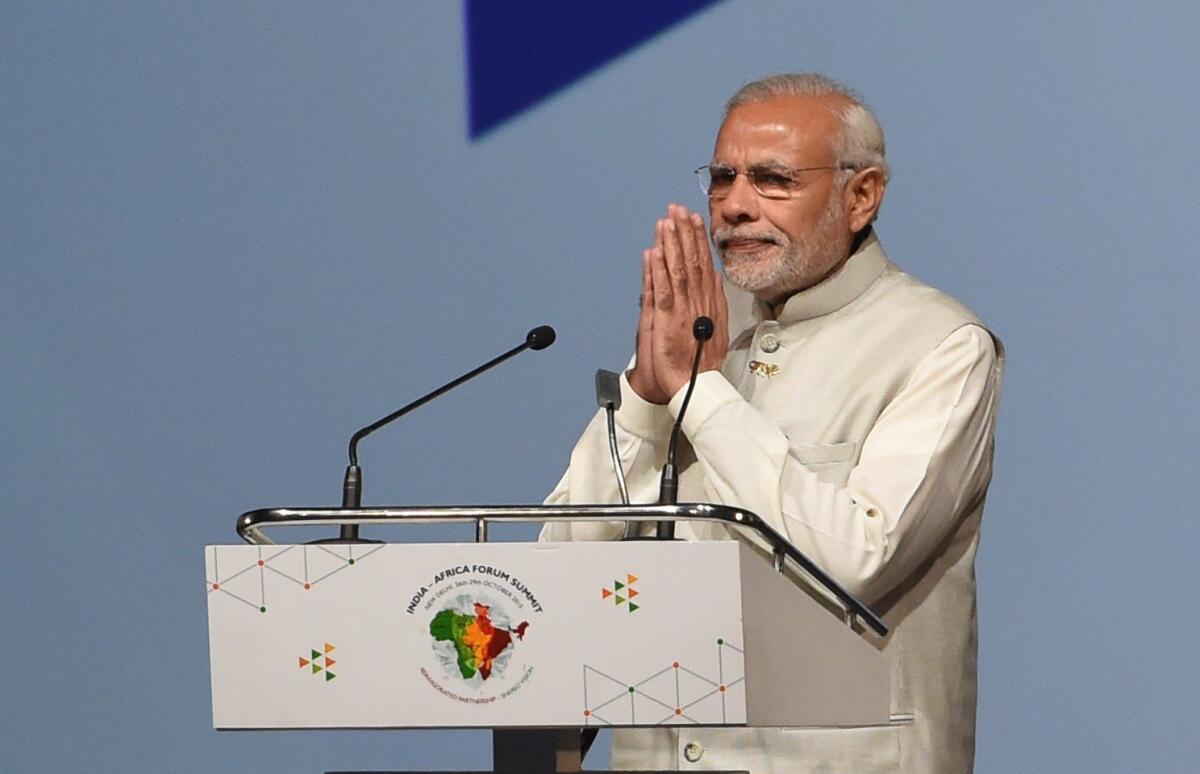
Indian Prime Minister Narendra Modi at the India-Africa Forum Summit in New Delhi on Oct. 29.
India’s populist prime minister presided over 7.4% economic growth in his first year in office and raised his profile as a global leader during visits with Obama and Xi. A barnstorming tour of Silicon Valley reinforced his nation’s massive importance in technology.
10. Larry Page
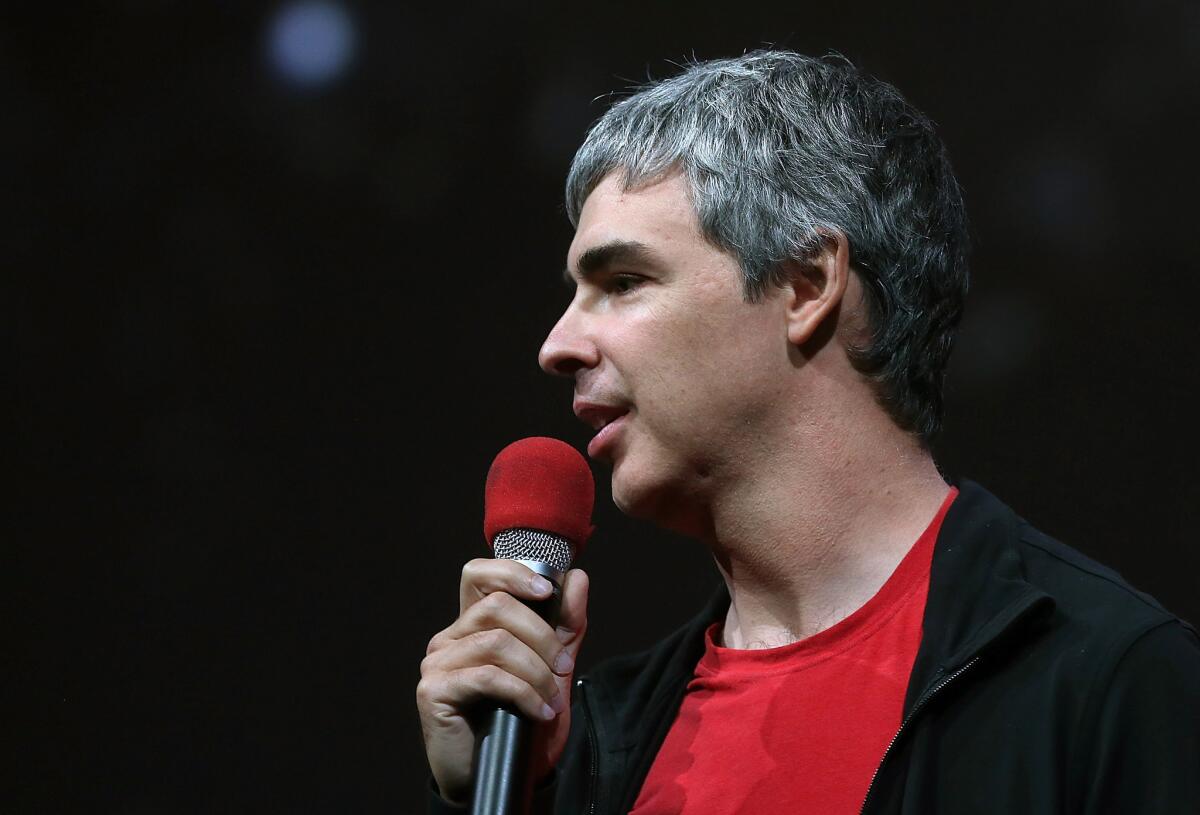
Larry Page, Google co-founder and chief executive, at the Google I/O developers conference in San Francisco in May.
At 42, the chief executive of new publicly traded Google parent company Alphabet is the youngest in the top 10 on Forbes’ list. In August he announced that he’d be handing over the Google leadership to the search giant’s product czar, Sundar Pichai.
The full list: www.forbes.com/powerful-people/list/
Follow @cjwilliamslat for the latest international news 24/7.
More to Read
Start your day right
Sign up for Essential California for news, features and recommendations from the L.A. Times and beyond in your inbox six days a week.
You may occasionally receive promotional content from the Los Angeles Times.

